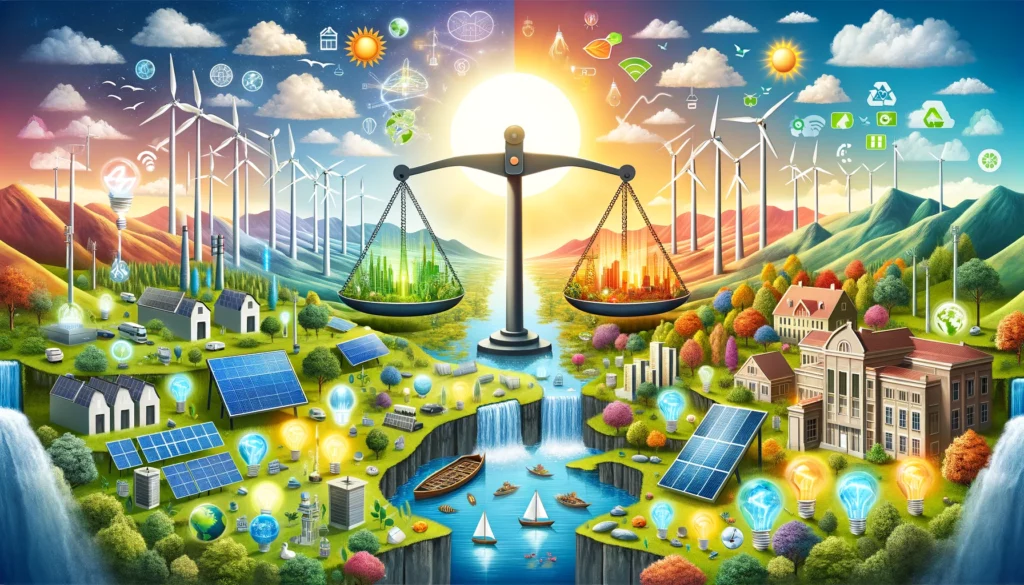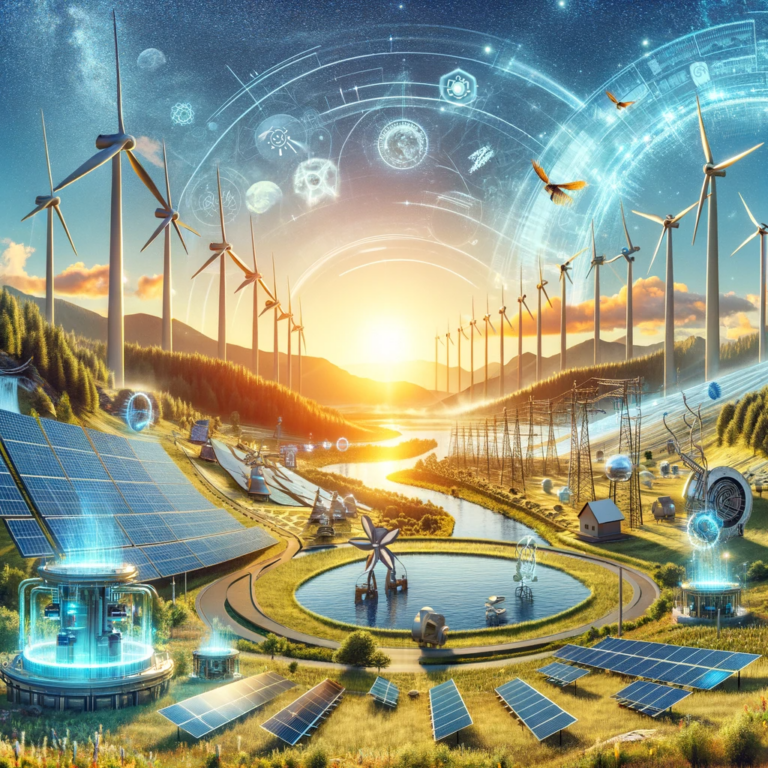Renewable Energy vs Sustainable Energy
In the evolving discourse on energy, the terms “renewable energy” and “sustainable energy” often surface, sometimes interchangeably. However, while they may appear synonymous, there are nuanced distinctions that set them apart. In this discussion, we’ll delve into the characteristics of both renewable and sustainable energy, exploring their benefits, challenges, and their roles in our quest for a greener future.
Understanding Renewable Energy
Renewable energy refers to energy sources that are replenished naturally on a short timescale and are inexhaustible. These sources include solar, wind, hydroelectric, biomass, and geothermal energy. The defining feature of renewable energy is its ability to regenerate swiftly and its minimal impact on carbon emissions during production.
Solar Energy: Harnessed from the sun, solar power is captured using photovoltaic cells that convert sunlight directly into electricity. This form of energy is particularly beneficial because it provides a clean, inexhaustible power source that can be deployed at both small and large scales.
Wind Energy: Generated through wind turbines that convert the kinetic energy of wind into electrical power. Wind farms can be established offshore or on land and are among the most efficient renewable technologies.
Hydroelectric Power: Produced by capturing the energy of falling or fast-running water. While highly efficient and renewable, it’s important to note that not all hydroelectric projects are considered sustainable due to potential ecological disruptions.
Exploring Sustainable Energy
Sustainable energy, on the other hand, is a broader concept that not only encompasses the renewability of the source but also considers the long-term impacts of energy production on the environment and society. Sustainable energy sources are those that support the current generation’s needs without compromising the ability of future generations to meet their own needs.
Sustainable energy focuses on minimizing environmental impacts, promoting energy efficiency, and enhancing the quality of life. It includes all renewable energy sources but also involves technologies and practices that improve energy efficiency.
Energy Efficiency: This involves using less energy to perform the same task. Examples include LED lighting, energy-efficient appliances, and advanced building insulation techniques.
Biomass with Carbon Capture: While biomass is a renewable energy source, it becomes sustainable when combined with carbon capture technologies to minimize the net emissions associated with its combustion.
Renewable Energy vs Sustainable Energy: A Comparative Insight
While renewable energy sources are inherently cleaner compared to fossil fuels, they are not always automatically sustainable. For instance, large-scale solar farms require significant land use and can disrupt local ecosystems. Similarly, the production of solar panels involves hazardous chemicals and generates waste. Therefore, the sustainability of renewable resources can sometimes be contingent on the methods of production, deployment, and waste management.
Conversely, not all sustainable energy practices rely solely on renewable sources. Sustainable energy strategies often integrate cutting-edge technologies, regulatory policies, and community-focused initiatives to reduce environmental footprints across various sectors, regardless of the energy source used.

The Winning Strategy
The debate between renewable energy and sustainable energy isn’t about which is better but rather about how they can complement each other. The path to a truly sustainable energy future involves integrating both concepts:
- Integration of Technologies: Combining various forms of renewable energy sources with technologies that enhance energy efficiency and reduce ecological footprints.
- Policy and Regulation: Implementing policies that support sustainable practices in both renewable and non-renewable contexts.
- Community and Societal Engagement: Educating and involving communities in sustainable energy practices to ensure broad-based support and adaptability.
Conclusion
Both renewable and sustainable energies are crucial in addressing the urgent climate issues facing our planet. While renewable energy is vital for reducing our reliance on fossil fuels, sustainable energy practices ensure that these solutions truly benefit our environment and society in the long run. The ultimate winner in the renewable versus sustainable energy debate will be determined by our ability to effectively merge these concepts into a cohesive energy strategy that supports both our planet and its inhabitants.




